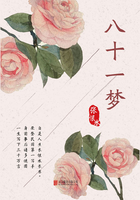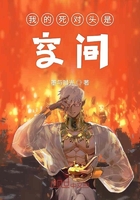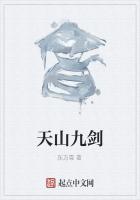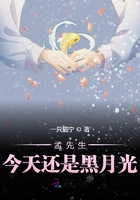别忘了我看不到我自己,我的角色仅限于看向镜子里的那个人。
Don't forget that I cannot see myself that my role is limited to being the one who looks in the mirror.
Life's best lessons are learned by living.
人生最好的启示来自于生活。
A Day at the Tradition
传统赛的一天
Christine Clifford
Several years ago I was diagnosed with cancer. It was the most difficult time I have ever faced. I think it was my sense of humor that allowed me to hold onto my sanity[1]. Like many people who have gone through chemotherapy, I lost all of my hair and I was bald as a cue ball. I always had enjoyed wearing hats, so when my hair deserted me, I ordered several special hats with the hair already attached. It was easy and I never had to worry about how my hair looked.
I have always been a big golf fan. In fact, I have been to twenty-three straight U.S. Opens. At one point during my cancer treatments, my husband John and I decided to get away from the cold Minnesota winter and took a trip to Scottsdale, Arizona. There was a Senior PGA Tour event called The Tradition being played, and that seemed like just the ticket to lift my spirits.
The first day of the tournament brought out a huge gallery. It was a beautiful day, and I was in heaven. I was standing just off the third tee, behind the fairway ropes, watching my three favorite golfers in the world approach the tee box: Jack Nicklaus, Raymond Floyd and Tom Weiskopf.
Just as they arrived at the tee, the unimaginable happened. A huge gust of wind came up from out of nowhere and blew my hat and hair right off my head and into the middle of the fairway! The thousands of spectators[2] lining the fairway fell into an awkward silence, all eyes on me. Even my golf idols were watching me, as my hair was in their flight path. I was mortified! Embarrassed as I was, I knew I couldn't just stand there. Someone had to do something to get things moving again.
So I took a deep breath, went under the ropes and out into the middle of the fairway. I grabbed my hat and hair, nestled them back on my head as best I could. Then I turned to the golfers and loudly announced, “Gentlemen, the wind is blowing from left to right.”
They said the laughter could be heard all the way to the nineteenth hole.
几年前我被诊断出癌症,这是我人生中最艰难的一段时期。我想,正是由于我的幽默感,才让我还能保持高度的理智。正如许多经历过化疗的人一样,我的头发都掉光了,看起来就像是一颗光亮的台球。我原本就十分喜爱戴帽子,所以当我全秃了以后,我就买了几顶自带头发的那种帽子。这样很方便,我也不用担心我的发型是否好看。
我是一个狂热的高尔夫球迷。事实上,我去过23场美国高尔夫公开赛的现场。有一次,在我的癌症治疗期间,我和丈夫约翰决定离开明尼苏达州的寒冷冬天,前往亚利桑那州的斯科茨代尔旅行。那儿正举行职业高球员协会(PGA)宿将巡回赛,这一传统赛事似乎让我的精神为之一振。
第一天的锦标赛仿佛上演在一个巨型画廊里,如此美丽,至若天堂。我站在第三个球座的旁边,前面就是球道绳索,能一眼看见我最喜欢的三个高尔夫球手:杰克·尼克劳斯、雷蒙德·弗洛伊德和汤姆·维斯科普夫在发球台上的飒爽英姿。
正当他们走到球座旁时,意想不到的事情发生了。不知道从哪儿刮来一阵大风,将我配有头发的帽子吹到了赛道中央!万千的观众顿时鸦雀无声,气氛极为尴尬,我被各种眼光包围着。甚至连我的高尔夫偶像也盯着我看,因为我的帽子和头发占了他们的赛道。真苦恼!这情况尴尬至极,我知道我不能只呆站在那里,总得有谁来打破这个僵局。
于是,我深吸了一口气,沿着绳索往下走到了赛道中间。我抓起这顶带假发的帽子,尽可能优雅地将它重新戴回头顶。然后我转向了高尔夫球手们,向他们大声喊道:“嘿,先生们,风向是从左往右的!”
据说,当时1到19号洞口的观众席都洋溢起欢乐的笑声。
My Father's Music
父亲的音乐
Wayne Kalyn
I remember the day Dad first lugged the heavy accordion up our front stoop, taxing his small frame. He gathered my mother and me in the living room and opened the case as if it were a treasure chest. “Here it is,” he said. “Once you learn to play, it'll stay with you for life.”
If my thin smile didn't match his full-fledged grin, it was because I had prayed for a guitar or a piano. For the next two weeks, the accordion was stored in the hall closet. Then one evening Dad announced that I would start lessons the following week. In disbelief I shot my eyes toward Mom for support. The firm set of her jaw told me I was out of luck.
Spending $300 for an accordion and $5 per lesson was out of character for my father. He was practical always—something he learned growing up on a Pennsylvania farm. Clothes, heat and sometimes even food were scarce.
Dad was a supervisor[3] in a company that serviced jet engines. Weekends, he tinkered in the cellar, turning scraps of plywood into a utility cabinet or fixing a broken toy with spare parts. Quiet and shy, he was never more comfortable than when at his workbench.
Only music carried Dad away from his world of tools and projects. On a Sunday drive, he turned the radio on immediately. At red lights, I'd notice his foot tapping in time. He seemed to hang on every note.
Still, I wasn't prepared when, rummaging[4] in a closet, I found a case that looked to me like a tiny guitar's. Opening it, I saw the polished glow of a beautiful violin. “It's your father's,” Mom said. “His parents bought it for him. I guess he got too busy on the farm to ever learn to play it.” I tried to imagine Dad's rough hands on this delicate instrument—and couldn't.
I was ordered to practice half an hour every day, and every day I tried to get out of it. My future seemed to be outside playing ball, not in the house mastering songs I would soon forget. But my parents hounded me to practice.
Gradually, to my surprise, I was able to string notes together and coordinate my hands to play simple songs. Often, after supper, my father would request a tune or two. As he sat in his easy chair, I would fumble through “Lady of Spain” and “Beer Barrel Polka”.
“Very nice, better than last week,” he'd say. Then I would follow into a melody of his favorites, “Red River Valley” and “Home on the Range”, and he would drift off to sleep, the newspaper folded on his lap. I took it as a compliment that he could relax under the spell of my playing.
One July evening I was giving an almost flawless rendition of “Come Back to Sorrento”, and my parents called me to an open window. An elderly neighbor, rarely seen outside her house, was leaning against our car humming dreamily to the tune. When I finished, she smiled broadly and called out, “I remember that song as a child in Italy. Beautiful, just beautiful.”
Throughout the summer, Mr. Zelli's lessons grew more difficult. It took me a week and a half to master them now. All the while I could hear my buddies outside playing heated games of stickball. I'd also hear an occasional taunt[5]; “Hey, where's your monkey and cup?”
Such humiliation paled, though, beside the impending fall recital. I would have to play a solo on a local movie theater's stage. I wanted to skip the whole thing. Emotions boiled over in the car one Sunday afternoon. “I don't want to play a solo.” I said. “You have to,” replied my father.
“Why?” I shouted. “Because you didn't get to play your violin when you were a kid? Why should I have to play this stupid instrument when you never had to play yours?” Dad pulled the car over and pointed at me. “Because you can bring people joy. You can touch their hearts. That's a gift I won't let you throw away.” He added softly, “Someday you'll have the chance I never had: you'll play beautiful music for your family. And you'll understand why you've worked so hard.”
I was speechless. I had rarely heard Dad speak with such feeling about anything, much less the accordion. From then on, I practiced without my parents' making me.
The evening of the concert Mom wore glittery earrings and more makeup than I could remember. Dad got out of work early, put on a suit and tie, and slicked down his hair with Vitalis. They were ready an hour early, so we sat in the living room chatting nervously. I got the unspoken message that playing this one song was a dream come true for them.
我还记得那一天——瘦弱的父亲将沉重的手风琴费力地拖到前门的情景。他招呼我和妈妈到客厅里来,然后打开了这个他视若珍宝的箱子。“看这个,”他说,“一旦你学会了它,它便会成为你终身的伙伴。”
和他发自内心的笑容不同,我只是勉强地笑了笑。因为我期待已久的,其实是一把吉他或一台钢琴。在接下来的两周里,那架手风琴都一直被放在走廊的壁橱里。一天傍晚,父亲突然宣布,我从下周起就要开始学手风琴了。带着疑惑,我赶忙向妈妈使眼色以求支援。可她紧绷的下巴告诉我,我不走运了。
花300美元买一架手风琴,每次上课再花5美元,这着实不符合父亲的性格。他一直是比较务实的——这是他在宾夕法尼亚州的农场习来的。衣物、暖气,甚至有时候连食物都会紧缺。
爸爸在一家为喷气式飞机提供引擎服务的公司担任主管。周末,他也总是在地下室里捣鼓,把一些胶合板的边角料做成实用的柜子,或者用一些零件把坏了的玩具修好。他性格内向腼腆,没有什么地方比工作台更能让他感到舒适了。
只有音乐能让父亲走出他那满是工具和材料的世界。在一个周日,我们驾车外出的时候,他一上车就打开了收音机。遇到红灯时,我注意到他的脚在有节奏地打着拍子,貌似还挺合拍的。
然而,当我在壁橱里翻找出一个像是装小吉他的盒子时,还是挺意外的。打开一看,是一把锃亮而漂亮的小提琴。“这是你父亲的,”妈妈说,“你祖父母买给他的。我想他平时忙于农务,所以没有时间学。”我试着想象父亲那粗糙的手在这精致的乐器上拨弄的场景——简直无法想象。
爸爸要求我每天练琴半小时,但我每天都想躲开。我的未来应该是在户外打球,而不是在屋里重复着这些让我很快就会忘记的歌曲。但父母总是不断地敦促我练习。
令我惊喜的是,我渐渐能把几个零散的音符串联在一起,演奏出简单的歌曲了,手的协调性也好多了。晚饭后,父亲常常让我拉上一两首曲子。他躺在老爷椅里,听我笨拙地拉完《西班牙女郎》和《波尔卡啤酒桶》。
他会说:“非常好,比上周好多了。”然后我就继续拉他喜欢的曲子《红河谷》和《山上之家》,他会在我的歌声中慢慢入睡,报纸就叠在膝盖上。我把这看作一种赞扬:他能够在我的琴声中得到放松。
7月的一个傍晚,我正在拉《重返索伦托》,效果近乎完美。父母突然把我叫到窗前。一位不太出门、上了年纪的邻居正靠在我们的车上,沉醉地跟着调子哼唱。曲终,她欣喜地笑了,大声说道:“我小时候在意大利就听过这首歌。美,真是太美了!”
整个夏天,泽利先生的课变得越来越难。我现在得花上一周半的时间才能掌握。我总是听到伙伴们在室外玩棍子球的欢闹声。偶尔还会听到一声讽刺:“嘿,伙计,你的猴子和奖杯哪儿去了?”
不过,这种羞辱与即将到来的秋季演奏会相比,就显得微不足道了。我会在当地一家影院的舞台上独奏一曲。我很想躲过这一切。一个周日的下午,我的情绪在车上爆发了。“我真的不想独奏。”我抱怨道。“你必须这样做。”父亲只回了我这几个字。
“为什么?”我吼道,“难道就因为你小时候没能拉小提琴吗?你都从来不拉琴,为什么我就一定得拉这笨重的乐器?”父亲将车停在路边,指着我说,“因为你能给人们带来欢乐。你能触动他们的心弦。我不能让你丢掉这种天赋。”他语气稍缓,“某一天你会拥有我从不曾拥有的机会:你能为你的家人演奏美妙的音乐。那时你就能明白自己如此努力的原因了。”
我顿时语塞。我极少能感受到父亲掏心窝的话,更别说是因为拉手风琴的事了。从那时起,即使父母不敦促,我也会自觉地练琴。
音乐会那晚,我记得母亲戴上了闪亮的耳环,精心打扮了一番。父亲也早早下了班,西装革履,还用乳液将头发抹得油亮亮的。他们提前一个小时就准备好了,我们坐在客厅紧张地聊着。我能感觉到,我演奏这首歌曲,就是实现了他们的一个梦想。
A Service of Love (Ⅰ)
爱的奉献(1)
O. Henry
When one loves one's Art no service seems too hard.
That is our premise. This story shall draw a conclusion from it, and show at the same time that the premise is incorrect. That will be a new thing in logic, and a feat in story-telling somewhat older than the Great Wall of China.
Joe Larrabee came out of the post-oak flats of the Middle West pulsing with a genius for pictorial art. At six he drew a picture of the town pump with a prominent citizen passing it hastily. This effort was framed and hung in the drug store window by the side of the ear of corn with an uneven number of rows. At twenty he left for New York with a flowing necktie and a capital tied up somewhat closer.
Delia Caruthers did things in six octaves so promisingly in a pine-tree village in the South that her relatives chipped in enough in her chip hat for her to go “North” and “finish”. They could not see her f—, but that is our story.
Joe and Delia met in an atelier where a number of art and music students had gathered to discuss chiaroscuro, Wagner, music, Rembrandt's works, pictures, Waldteufel, wall paper, Chopin and Oolong.
Joe and Delia became enamored one of the other, or each of the other, as you please, and in a short time were married—for (see above), when one loves one's Art no service seems too hard.
Mr. and Mrs. Larrabee began housekeeping in a flat. It was a lonesome flat—something like the A sharp way down at the left-hand end of the keyboard. And they were happy; for they had their Art, and they had each other. And my advice to the rich young man would be—sell all thou hast, and give it to the poor—janitor for the privilege of living in a flat with your Art and your Delia.
Flat-dwellers shall indorse my dictum that theirs is the only true happiness. If a home is happy it cannot fit too close—let the dresser collapse and become a billiard table; let the mantel turn to a rowing machine, the escritoire to a spare bedchamber, the washstand to an upright piano; let the four walls come together, if they will, so you and your Delia are between. But if home be the other kind, let it be wide and long—enter you at the Golden Gate, hang your hat on Hatteras, your cape on Cape Horn and go out by the Labrador.
Joe was painting in the class of the great Magister—you know his fame. His fees are high; his lessons are light—his high-lights have brought him renown. Delia was studying under Rosenstock—you know his repute as a disturber of the piano keys.
They were mighty happy as long as their money lasted. So is every—but I will not be cynical. Their aims were very clear and defined. Joe was to become capable very soon of turning out pictures that old gentlemen with thin side-whiskers and thick pocketbooks would sandbag one another in his studio for the privilege of buying. Delia was to become familiar and then contemptuous with Music, so that when she saw the orchestra seats and boxes unsold she could have sore throat and lobster in a private dining-room and refuse to go on the stage.
But the best, in my opinion, was the home life in the little flat—the ardent, voluble chats after the day's study; the cozy dinners and fresh, light breakfasts; the interchange of ambitions—ambitions interwoven each with the other's or else inconsiderable—the mutual help and inspiration; and—overlook my artlessness—stuffed olives and cheese sandwiches at 11 p.m.
But after a while Art flagged. It sometimes does, even if some switchman doesn't flag it. Everything going out and nothing coming in, as the vulgarians say. Money was lacking to pay Mr. Magister and Herr Rosenstock their prices. When one loves one's Art no service seems too hard. So, Delia said she must give music lessons to keep the chafing dish bubbling.
For two or three days she went out canvassing for pupils. One evening she came home elated.
“Joe, dear,” she said, gleefully, “I've a pupil. And, oh, the loveliest people! General—General A. B. Pinkney's daughter—on Seventy-first street. Such a splendid house, Joe—you ought to see the front door! Byzantine I think you would call it. And inside! Oh, Joe, I never saw anything like it before.
“My pupil is his daughter Clementina. I dearly love her already. She's a delicate thing-dresses always in white; and the sweetest, simplest manners! Only eighteen years old. I'm to give three lessons a week; and, just think, Joe! $5 a lesson. I don't mind it a bit; for when I get two or three more pupils I can resume my lessons with Herr Rosenstock. Now, smooth out that wrinkle between your brows, dear, and let's have a nice supper.”
“That's all right for you, Dele,” said Joe, attacking a can of peas with a carving knife and a hatchet, “but how about me? Do you think I'm going to let you hustle for wages while I philander in the regions of high art? Not by the bones of Benvenuto Cellini! I guess I can sell papers or lay cobblestones, and bring in a dollar or two.”
Delia came and hung about his neck.
“Joe, dear, you are silly. You must keep on at your studies. It is not as if I had quit my music and gone to work at something else. While I teach I learn. I am always with my music. And we can live as happily as millionaires on $15 a week. You mustn't think of leaving Mr. Magister.”
“All right,” said Joe, reaching for the blue scalloped vegetable dish. “But I hate for you to be giving lessons. It isn't Art. But you're a trump and a dear to do it.”
“When one loves one's Art no service seems too hard,” said Delia.
“Magister praised the sky in that sketch I made in the park,” said Joe. “And Tinkle gave me permission to hang two of them in his window. I may sell one if the right kind of a moneyed idiot sees them.”
“I'm sure you will,” said Delia, sweetly. “And now let's be thankful for Gen. Pinkney and this veal roast.”
一旦某个人爱上了另一个人的艺术,那么一切奉献都不在话下。
那是我们的前提。这个故事将由此得出结论,同时表明这个前提是错的。这从逻辑上讲要数新鲜的事了,可从讲故事的技艺上看,却已像中国的万里长城那般古老。
乔·拉腊比来自美国中西部的栎树平原,他整个人的骨子里都脉动着绘画的天赋。6岁时他画了一幅画,画中是一台镇上的抽水机,画面显现出一位匆匆路过的行人。这幅作品被装上框挂在药店的橱窗上,画旁是几排数目不等的玉米穗。20岁时,他前往纽约,当时的他领带飘摇,钱包更是飘渺。
来自南方松树村庄的迪莉娅·凯鲁瑟斯能将六个八度弹得出神入化,于是她的亲朋好友们凑份子让她去“北方”“深造”。他们无法预知她的未——,而这就是我们要讲的故事。
乔和迪莉娅在一个画室里邂逅对方,一些学艺术和音乐的学生聚集在这画室里讨论明暗效果、瓦格纳、音乐、伦布兰特的作品、绘画、瓦尔特费尔、壁纸、肖邦和奥朗。
乔和迪莉娅一见倾心,或是相互倾心,你高兴怎么说就怎么说,而且不久就结为了夫妻——因为(见上文),一旦某个人爱上了另一个人的艺术,那么一切奉献都不在话下。
从此以后,拉腊比夫妇就在一所公寓里过起了日子。公寓非常冷清——就像左手末端琴键上的A音一样陡然滑落。他们生活得很幸福;因为他们拥有自己的艺术,还拥有彼此。我要劝那些有钱的年轻人,卖掉你的家当,然后将卖得的钱交给穷苦的守门人吧——以争取和你的艺术以及迪莉娅一起在公寓里生活的权利。
居住在公寓里的人们会认可我的说法,那就是,他们拥有的幸福才是唯一真实的幸福。幸福的家庭拥挤得只能一物多用又何妨——让壁橱翻倒充当台球桌,将壁炉架当作划船器,将写字桌当作临时的卧榻,洗脸架充当竖式钢琴;如果可能的话,让四堵墙壁挤拢来,将你和你的迪莉娅围在中间。但倘若是另一类的家庭,也就无所谓它是多么宽大——你可以从金门海峡进门,将帽子挂在哈特勒斯,将披肩挂在合恩角,出门还要经过拉布拉多。
乔在著名的曼切斯特老师那儿学画——你也知道他的名声。他收费高昂,课程轻松——他也因此而闻名。迪莉娅在罗森斯托克那儿学习——你也知道他是一个出了名的专跟钢琴键过不去的家伙。
只要他们的钱还没用完,生活就很幸福。每个家庭都是这样——可我并不悲观。他们的目标非常清晰明确。乔很快就能作出一些画作,那些鬓须稀疏而钱袋殷实的老先生们,就会挤满他的画室,争相购买他的作品。迪莉娅要把音乐练熟,达到对其不屑一顾的程度,以至于要是她见到音乐厅里的位置和包厢不满座,她就可以谎称喉咙痛,在专用的餐室里吃龙虾,拒绝登台。
可在我看来,最美满的还是小公寓里的家庭生活:一天的学习之后,夫妻俩热情地促膝交谈;享受舒适的晚饭和清新淡雅的早餐;互诉心中的梦想——与对方有关的梦想,否则就不予考虑——相互帮助与启发;还有,恕我不懂讲究——晚上11点钟饱吃一顿橄榄和奶酪三明治。
可是没过多久,艺术就偃旗息鼓。即使没有人去动摇它,有时它自己也会衰落。俗话说,坐吃山空,他们的钱已经不够交曼切斯特和罗森斯托克两位先生的学费了。一旦某个人爱上了另一个人的艺术,那么一切奉献都不在话下。于是迪莉娅说,她要去教音乐,以维持三餐供应。
她在外面奔走了两三天,兜揽学生。一天晚上,她兴高采烈地回到家。
“乔,亲爱的,”她高兴地说,“我招到了一个学生。而且,哦,那家人可爱极了!她是住在71号街的一位将军——埃·皮·品克奈将军的女儿。他们家的房子非常华丽,乔——你真该去看看那大门!我想你会说那是拜占庭风格。还有里面!哦,乔,我从没有见过那样的房子。
“我收的学生就是他的女儿克莱门蒂娜。我可喜欢她了。她是个娇美的小家伙,总是穿白色的衣服;而且她举止可爱又淳朴!她只有18岁。我每星期上三次课;你想想看,乔!每节课5块钱。可是我一点也不在乎;等我再找到两三个学生,我又可以到罗森斯托克先生那儿去学习了。所以,别皱眉了,亲爱的,让我们好好享受一顿晚餐吧。”
“你倒好了,迪莉,”乔说着,用小斧和餐刀撬开一听青豆,“可我怎么办呢?你以为我能让你忙着挣钱,而自己却倘佯在崇高的艺术中吗?我以本韦努托·切利尼的尸骨赌咒,绝对不能!我想我可以卖卖报纸,或去搬石头铺马路,这样多少也能挣得一两美元。”
迪莉娅走过来,环住他的脖子。
“乔,你真傻。你一定要坚持作画。我并没有放弃音乐去做其他的事啊。我边教书也边学习呢。我一直与我的音乐同在。即便每周只赚15美元,我们也可以像百万富翁那样幸福地生活。你可千万别想离开曼切斯特先生的课堂。”
“没错,”乔说着伸手去拿那只荷叶花边的蓝色盘子,“可是我不想让你去教课。那可不是艺术。你真好,竟愿意做这般牺牲。”
“一旦某个人爱上了另一个人的艺术,那么一切奉献都不在话下。”迪莉娅说。
“曼切斯特夸奖了我在公园里画的那幅素描,他说上面的天空画得很不错,”乔说,“丁克还答应让我在他的橱窗里挂上两幅。若是哪个有钱的傻瓜看中了它,我还可以卖出一幅。”
“我相信你一定能卖出去,”迪莉娅甜蜜地说,“现在,还是让我们感谢品克奈将军和这些烤肉吧。”
A Service of Love (Ⅱ)
爱的奉献(2)
O. Henry
During all of the next week the Larrabees had an early breakfast. Joe was enthusiastic about some morning-effect sketches he was doing in Central Park, and Delia packed him off breakfasted, coddled, praised and kissed at 7 o'clock. Art is an engaging mistress. It was most times 7 o'clock when he returned in the evening.
At the end of the week Delia, sweetly proud but languid, triumphantly tossed three five-dollar bills on the 8x10 (inches) centre table of the 8x10 (feet) flat parlour.
“Sometimes,” she said, a little wearily, “Clementina tries me. I'm afraid she doesn't practice enough, and I have to tell her the same things so often. And then she always dresses entirely in white, and that does get monotonous. But Gen. Pinkney is the dearest old man! I wish you could know him, Joe. He comes in sometimes when I am with Clementina at the piano—he is a widower, you know—and stands there pulling his white goatee. ‘And how are the semiquavers and the demisemiquavers progressing?’ he always asks.
“I wish you could see the wainscoting in that drawing-room, Joe! And those Astrakhan rug portieres. And Clementina has such a funny little cough. I hope she is stronger than she looks. Oh, I really am getting attached to her, she is so gentle and high bred. Gen. Pinkney's brother was once Minister to Bolivia.”
And then Joe, with the air of a Monte Cristo, drew forth a ten, a five, a two and a one—all legal tender notes—and laid them beside Delia's earnings.
“Sold that watercolor of the obelisk to a man from Peoria,” he announced overwhelmingly.
“Don't joke with me,” said Delia, “not from Peoria!”
“All the way. I wish you could see him, Dele. Fat man with a woollen muffler and a quill toothpick. He saw the sketch in Tinkle's window and thought it was a windmill at first, he was game, though, and bought it anyhow. He ordered another—an oil sketch of the Lackawanna freight depot—to take back with him. Music lessons! Oh, I guess Art is still in it.”
“I'm so glad you've kept on,” said Delia, heartily. “You're bound to win, dear. Thirty-three dollars! We never had so much to spend before. We'll have oysters to-night.”
“And filet mignon with champignons,” said Joe. “Were is the olive fork?”
On the next Saturday evening Joe reached home first. He spread his $18 on the parlour table and washed what seemed to be a great deal of dark paint from his hands.
Half an hour later Delia arrived, her right hand tied up in a shapeless bundle of wraps and bandages.
“How is this?” asked Joe after the usual greetings. Delia laughed, but not very joyously.
“Clementina,” she explained, “insisted upon a Welsh rabbit after her lesson. She is such a queer girl. Welsh rabbits at 5 in the afternoon. The General was there. You should have seen him run for the chafing dish, Joe, just as if there wasn't a servant in the house. I know Clementina isn't in good health; she is so nervous. In serving the rabbit she spilled a great lot of it, boiling hot, over my hand and wrist. It hurt awfully, Joe. And the dear girl was so sorry! But Gen. Pinkney!—Joe, that old man nearly went distracted. He rushed downstairs and sent somebody—they said the furnace man or somebody in the basement—out to a drug store for some oil and things to bind it up with. It doesn't hurt so much now.”
“What's this?” asked Joe, taking the hand tenderly and pulling at some white strands beneath the bandages.
“It's something soft,” said Delia, “that had oil on it. Oh, Joe, did you sell another sketch?” She had seen the money on the table.
“Did I?” said Joe; “just ask the man from Peoria. He got his depot to-day, and he isn't sure but he thinks he wants another parkscape and a view on the Hudson. What time this afternoon did you burn your hand, Dele?”
“Five o'clock, I think,” said Dele, plaintively. “The iron—I mean the rabbit came off the fire about that time. You ought to have seen Gen. Pinkney, Joe, when—”
“Sit down here a moment, Dele,” said Joe. He drew her to the couch, sat beside her and put his arm across her shoulders.
“What have you been doing for the last two weeks, Dele?” he asked.
She braved it for a moment or two with an eye full of love and stubbornness, and murmured a phrase or two vaguely of Gen. Pinkney; but at length down went her head and out came the truth and tears.
“I couldn't get any pupils,” she confessed. “And I couldn't bear to have you give up your lessons; and I got a place ironing shirts in that big Twenty-fourth street laundry. And I think I did very well to make up both General Pinkney and Clementina, don't you, Joe? And when a girl in the laundry set down a hot iron on my hand this afternoon I was all the way home making up that story about the Welsh rabbit. You're not angry, are you, Joe? And if I hadn't got the work you mightn't have sold your sketches to that man from Peoria.”
“He wasn't from Peoria,” said Joe, slowly.
“Well, it doesn't matter where he was from. How clever you are, Joe—and—kiss me, Joe—and what made you ever suspect that I wasn't giving music lessons to Clementina?”
“I didn't,” said Joe, “until to-night. And I wouldn't have then, only I sent up this cotton waste and oil from the engine-room this afternoon for a girl upstairs who had her hand burned with a smoothing-iron. I've been firing the engine in that laundry for the last two weeks.”
“And then you didn't—”
“My purchaser from Peoria,” said Joe, “and Gen. Pinkney are both creations of the same art—but you wouldn't call it either painting or music.”
And then they both laughed, and Joe began:
“When one loves one's Art no service seems—”
But Delia stopped him with her hand on his lips. “No,” she said—“just ‘When one loves’.”
接下来的一整个星期,拉腊比夫妇早早就吃过了早餐。乔兴致满满地来到中央公园画他的晨间印象素描,七点时分,迪莉娅为他送来早饭,顺道向他撒撒娇,赞美一番他的画作,两人再亲吻一阵。艺术是一位迷人的情妇。他晚上回家时,大多已是7点钟了。
到了周末,骄傲中带着疲倦的迪莉娅就会得意洋洋地将三张5美元钞票扔在80×10(英尺)的客厅中间那张80×10(英寸)的桌子上。
“有时候,”她略显疲倦地说,“克里门蒂娜可让人费劲了。恐怕她根本没练习到位,同样的问题我要重复好多遍。而且她全身都穿成白色,看上去既单调又乏味。可品克奈将军却好得没话说!我希望你能够认识他,乔。有时他会在我与克里门蒂娜弹钢琴时进来——他是个鳏夫,你知道的——他就站在那儿,捋着他白色的山羊胡子。‘16分音符和32分音符学得怎么样了?’他总是问。”
“我希望你能看看那客厅里的壁板,乔!还有那些阿斯特拉罕的毯式门帷。克里门蒂娜总有些微微咳嗽。我希望她的身体不像看起来那么娇弱。喔,我真是越来越喜欢她了,她这么温柔,又有教养。品克奈将军的弟弟还曾担任过驻波利维亚公使。”
接着,乔带着基督山伯爵的神气,掏出一张10元、一张5元、一张2元和一张1元的钞票——全是合法的纸币——放在迪莉娅的钱旁边。
“那幅方尖石塔水彩画卖给了一个从皮奥里亚来的男人,”他郑重其事地宣布。
“别跟我开玩笑啦,”迪莉娅说,“不是从皮奥里亚来的吧!”
“就是那儿来的。我希望你能见见他,迪莉。他胖胖的,围着羊毛围巾,还咬着羽毛牙签。他在丁克的橱窗里看到了那幅画,刚开始还以为是风车呢。他倒很气派,一口气就买下了。他还预定了一幅拉克万纳货站的油画——准备带回去。我的音乐课!呵,我想艺术还是有用的。”
“我很高兴你坚持下来了,”迪莉娅由衷地说,“你注定会成功的,亲爱的。33美元啊!我们之前可从没有过这么多钱。我们今晚可以吃牡蛎咯。”
“再来点菲力牛排加金针菇,”乔说,“橄榄叉在哪儿?”
接下来的那个周六晚上,乔先回到家。他把他的18块钱摊在客厅的桌子上,然后把手上大块貌似黑色颜料的东西洗干净。
半个钟头以后,迪莉娅来了,她的右手用绷带胡乱地缠成一团。
“怎么回事?”乔照例问候之后问道。迪莉娅笑了,可是笑得并不十分欢乐。
“克里门蒂娜,”她解释说,“上了课之后一定要吃奶酪面包。她真是个古怪的女孩儿,下午5点钟还要吃威尔士干酪。将军也在场。你该看看他奔去拿烘锅的样子,乔,好像家里没有佣人似的,我知道克里门蒂娜身体不好;她神经脆弱。她浇奶酪时泼翻了许多,滚烫的,溅在我的手腕上。痛得要命,乔。那可爱的女孩难过极了!还有品克奈将军!乔,那老头儿差点要发狂了。他冲下楼去叫人,他们说是烧炉子的或是地下室里的什么人,到药房里去买了一些油和别的东西来替我包扎。现在倒不怎么痛了。”
“这是什么?”乔轻轻地握住那只手,扯着绷带下面的几根白线,问道。
“那是软纱,”迪莉娅说,“上面涂了油。喔,乔,你又卖了画吗?”她看到了桌子上的钱。
“有吗?”乔说,“只是去问了问那个从皮奥里亚来的人。他今天来取了画,他还没怎么确定,可能还要一幅公园景致和一幅哈得逊河风景。你今天下午什么时候烫到手的,迪莉娅?”
“大概5点钟吧,”迪莉娅可怜巴巴地说,“那个熨——我是说奶酪,大概在那个时候烧好。你真该看到品克奈将军,乔,他……”
“先在这儿坐一会儿吧,迪莉,”乔说着扶她到沙发上,坐在她身旁,用手臂圈住她的肩膀。
“这两个星期来,你到底在做什么呀,迪莉?”他问道。
她定了一会儿神,眼神里充满了爱意和倔强,之后小声嘟哝了几句,提到了品克奈将军;可最终垂下头来,一边哭,一边说了实话。
“我找不到学生,”她供认道,“我又不忍心看你放弃你的课程,于是在24号街那家大洗衣作坊里找了份烫衬衣的活儿。我以为我把品克奈将军和克里门蒂娜两个人编造得很好呢,可不是吗,乔?今天下午,洗衣坊里一个姑娘的热熨斗烫了我的手,我一路上就编出那个威尔士干酪的故事。你不会生我的气,对吧,乔?如果我不去做工,你也许不可能把你的画卖给那个皮奥里亚人。”
“他不是从皮奥利亚来的。”乔慢慢吞吞地说。
“他打哪儿来都一样。你真聪明,乔——亲亲我,乔——你怎么会怀疑我没有教克里门蒂娜音乐呢?”
“我没有,”乔说,“直到今晚前都没有怀疑,本来今晚也不会起疑的,可是今天下午,我把机器间的油和废纱头送给楼上一个被熨斗烫了手的姑娘。两星期来,我就在那家洗衣作坊的炉子房烧火。”
“那你并没有——”
“我那位皮奥里亚来的买主,”乔说,“和品克奈将军都是同一艺术的产物——只是那既非绘画也非音乐罢了。”
接着,两人都笑了,乔说:
“当一个人爱上了另一个人的艺术,那么一切奉献都——”
可是迪莉娅用手掩住了他的嘴。“不,”她说——“只需说‘当一个人爱上了另一个人’。”
Swans Mate for Life
天鹅的爱情
Hal Torrance
The end of my sophomore year was approaching. Mom called me at the dorm one muggy[6] evening during the last week of May. My summer break would be spent with Grandma and Grandpa, helping out around their farm. The arrangement made good sense to all the family. I wasn't fully convinced of that myself but figured it was just one summer. Next year would be my little brother's turn.
I packed my car after my last exam and said my good-byes until the fall. My friends would keep until then. Most of them were going home for the summer anyway.
The farm was about a three-hour drive from school. My grandparents were both in their seventies, and I knew they really needed the help around the farm. Getting in the hay would be something Grandpa couldn't do by himself. He also needed help with repairs to the barns and a host of other chores.
I arrived late that afternoon. Grandma had fixed more food than the three of us could possibly eat. She doted[7] over me entirely too much. I figured all the attention would taper off once she got used to having me around, but it didn't. Grandpa wanted to bring me up to date on literally everything. By the time I settled in for bed that night, I'd decided things would be okay. After all, it was just for one summer.
The next morning, Grandpa fixed breakfast for the two of us. He told me Grandma had tired herself out yesterday and was going to rest in bed a little longer. I made a mental note to myself to not ask her to do things for me while I was there. I was there to help, not be a burden.
Grandpa surprised me that morning. Once we were out of the house, he seemed more in his own element. The farm was his domain. Despite his age, there was confidence in the way he moved about the place. He didn't seem like the same person who had fallen asleep last night on the couch before the six o'clock news was finished. As we walked the pastures getting a close-up look at the livestock, Grandpa seemed to know each cow. And there were nearly two hundred of them!
We didn't do much real work that first day, but I gained a sense of appreciation for what Grandpa had done all those years before I was even born. He wasn't an educated man, but he had raised and provided for four children on this farm. I was impressed by that.
Weeks passed. By June we had already baled one cutting of hay and gotten it safely into the barn. I gradually settled into a routine of daily work with Grandpa. He had a mental schedule of things that needed doing, and we worked on part of it each day. In the evenings I usually read or talked with Grandma. She never grew tired of hearing about college or anything I was involved in. She told me stories about her childhood, family and the early years after she and Grandpa had married.
The last Saturday in June, Grandpa suggested we go fishing, since we were caught up on everything. The pond was in a low pasture near the woods. Years before, Grandpa had stocked it with fish. We drove the pickup to the pond that day, looking over the livestock as we went. We hadn't expected what we saw when we got to the pond that morning: One of the swans was dead. Grandpa had given the pair of swans to Grandma on their fiftieth anniversary.
“Why don't we see about buying another one,” I suggested, hoping the situation could somehow be righted. Grandpa thought for a few moments before answering. He finally said, “No…it's not that easy, Bruce. You see, swans mate for life.” He raised his finger to point, holding the fishing pole in his other hand. “There's nothing we can do for the one that's left. He has to work it out for himself.”
We caught enough fish that morning for lunch. On the way back to the house, Grandpa asked me not to tell Grandma about the swan. She didn't get down to the pond much anymore, and there was no sense in her knowing about it right away.
A few days later, we drove by the pond while doing our morning check on the cows. We found the other swan lying near the same spot we had found the first one. It, too, was dead.
The month of July started with me and Grandpa putting up a new stretch of fence. Then July 12 came. That was the day Grandma passed away. I'd overslept that morning. Grandpa had not knocked on my door, either. It was nearly eight o'clock by the time I could hurriedly dress myself and get down to the kitchen. I saw Dr. Morgan sitting at the kitchen table. He was a neighbor my grandparents’ age, long since retired. He'd come to the house several times before on social calls. I immediately knew something was wrong. This morning, his tattered old black bag was by his feet, and my grandfather was obviously shaken.
Grandma had died suddenly that morning of a stroke[8]. By the afternoon, my parents were there. The old house was soon crowded with relatives and Grandpa's friends.
The funeral was held the next day. Grandpa had insisted on having it as soon as possible. On the second day after the funeral, Grandpa announced at the breakfast table, “This is a working farm. We have a lot of things to do. The rest of you should get back to your own lives.” Most of the family had already left, but this was Grandpa's way of telling the rest it was time for them to go home. My parents were the last to leave after lunch.
Grandpa was not a man who could outwardly express his grief around others, and we all worried about him. There had been talk of his giving up the farm. My parents thought he was too old to live out there alone. He wouldn't hear of it, though. I was proud of the way the old man had stood his ground.
The rest of the summer flowed by. We stayed busy working. I thought there was something different about Grandpa but couldn't quite put my finger on it. I started to wonder if he would be better off living with someone after all, but I knew he could not leave the farm.
September was nearing, and part of me did not want to leave. I thought of skipping the fall semester and staying around a few more months. When I mentioned it, Grandpa quickly told me that my place was back at college.
The day finally came for me to pack my car and leave. I shook his hand and chanced a hug. As I drove down the driveway, I saw him in the rearview mirror. He waved to me and then walked to the pasture gate to start the morning livestock check. That's how I like to remember him.
Mom called me at school on a blustery[9] October day to tell me Grandpa had died. A neighbor had stopped by that morning for coffee and found him in the kitchen. He died of a stroke, same as Grandma. At that moment, I understood what he'd clumsily tried to explain to me about the swan on that morning we fished together by the pond.
我大学的第二个学年即将结束。5月最后一个礼拜,一个闷热的夜晚,母亲打电话到宿舍告诉我说,今年夏天我将要和爷爷奶奶共度暑假,去他们的农场上帮忙。这个安排对全家人都有好处,我却并不十分信服,不过转念一想,也只是一个暑假罢了。明年就该轮到我弟弟了。
最后一场考试结束后,我就整理好了行装放进车里,并与我的朋友们告别,相约秋天再见。他们大多数人都会回家过暑假。
农场离学校有三个小时的车程。我的爷爷奶奶都是年届七旬的老人,他们的确需要帮手来帮忙打理农场。爷爷独自一人没法收割干草,而且他也需要有人帮忙修理谷仓,做其他的一些杂务。
那天下午晚些时候,我到达了农场。奶奶准备了很多食物,我们三个人根本都吃不完。她太宠爱我了,我原以为一旦她习惯了我在身边,对我的关注就会慢慢消退,但是,后来的事实证明并非如此。爷爷几乎做得面面俱到,他想让我熟悉每一件事情。到晚上上床睡觉的时候,我告诉自己:没关系,一切都会好的。毕竟,我只待一个暑假而已。
第二天一早,爷爷为我们俩做好了早餐。他告诉我说奶奶昨天太累了,要在床上多休息一会儿。我在心里暗暗记下:以后不要让奶奶为我做事了,毕竟我是来这里帮忙的,我可不想成为他们的负担。
那天早晨,爷爷着实让人大吃一惊。我们一走出房子,爷爷似乎就立刻变得轻松自在起来。这座农场就是他的领地,尽管他年事已高,但他在这里四处走动的时候,总是显得自信满满,自得其乐。与昨晚6点新闻结束之前就在沙发上呼呼大睡的爷爷相比,现在的他似乎摇身一变,成了一个截然不同的人。我们走到草场上仔细查看牲畜,而爷爷似乎认识每一头牛,那里竟然有近两百头牛!
第一天,我们没干什么实质性的活儿,但对于爷爷从我出生前以来这些年一直从事的事情,我不禁从心底油然而生一股欣赏钦佩之情。他没受过什么教育,也没多少文化,但他却在这个农场上将四个子女抚养成人。我被深深地感动了。
一转眼,几个星期过去了。到6月的时候,我们已经将干草收割打捆,并顺利地送入谷仓。我逐渐适应了和爷爷一起完成每天的例行工作。对于需要做的事情,他脑子里列了一个时间表,每天我们都会各自完成这些工作。晚上,我时常和奶奶一块儿聊天或看书。她从来不会厌倦谈论我的大学生活以及与我有关的一切;而她也对我回忆起她的童年,她的家人,以及她和爷爷刚结婚那几年的往事。
6月的最后一个星期六,爷爷提议我们去钓鱼,因为我们已经干完了所有当时能做的农活。池塘位于树林附近的一片低矮的草场中,几年前,爷爷在池塘里放养了很多鱼。那天,我们开着皮卡车去池塘边,途中还去查看了一下牲畜。当我们到达池塘的时候,看到了未曾预料到的意外一幕:一对天鹅中的一只死掉了。那对天鹅可是爷爷在结婚50周年纪念日送给奶奶的礼物。
“为什么我们不再买一只天鹅呢?”我提了个建议,想缓和一下当时的气氛。爷爷陷入了沉思,久久不回答我的问题。最后,他说道:“不……没那么简单,孩子。天鹅一生只有一个伴侣。”他举起一根手指,另一只手上握着钓鱼竿,“我们不能为剩下的那只天鹅做什么,它要靠自己度过这个难关。”
那天上午,我们很快便钓到了很多鱼,足够午饭时美餐一顿了。在回家的路上,爷爷嘱咐我不要对奶奶提起天鹅的事。她现在很少去塘边,而且让她知道这件事也没有任何意义。
几天后的一个早晨,我们和往常一样开车去检查牲畜。路过池塘时,在那只天鹅死去的同一地点,我们发现那儿躺着另一只天鹅,它也已经死去了。
7月初,我和爷爷开始建造一段新的围栏。然后,就到了7月12日——奶奶去世的那一天。那天早晨,我睡过头了,爷爷也没有来敲门。等我急匆匆穿好衣服,走下楼梯进入厨房的时候,都快到8点了。我看见摩根医生坐在餐桌边。他和我的爷爷奶奶年纪相仿,是他们的邻居,已经退休很多年了,以前也曾应邀来过好几次。我立刻发觉有什么事情发生了。这天早上,他那破旧的黑包就扔在脚边,而我爷爷明显有些摇晃,似乎站立不稳。
那天早晨,奶奶因为中风突然去世。到下午的时候,我父母也赶到了。这座老房子里很快挤满了亲戚和爷爷的朋友。
因为爷爷坚持让奶奶尽早入土为安,所以葬礼就在第二天举行。葬礼过后的第二天,爷爷在早餐时向大家宣布:“这个农场还需要正常运作,我们有很多事情要做。其余的人都回到你们自己的生活中去吧。”大多数家人已经离开,但是爷爷要以自己的方式告诉留下的人,是时候该回去了。我父母是最迟离开的,那天午饭后他们也走了。
爷爷不是一个会在人前表达悲痛的人,我们都为他感到担忧。于是,有人提出让他放弃继续在农场生活。我父母也觉得他年纪太大,不适合独自在那里生活。但他并不听从他们的建议。老人以自己的方式坚守着自己的立场,我为他感到骄傲。
剩下的日子飞一般地过去。我们总是忙着干活。我觉察到爷爷有些变化,但我又不能明确说出有什么不同来。我开始想,如果他能和谁一起住,是否会对他更好一些。但是,我清楚地知道,他不能离开农场。
9月渐渐临近,我有些不愿意离去。我甚至想过秋天的那个学期不去上学,而在农场上多待几个月时间。当我跟爷爷说起我的想法时,他毅然告诉我说,学校才是我该去的地方。
离开的那一天最终还是来临了,我不得不打点行装,回到学校去。我握了握他的手,同他拥抱了一下。我一边驾车沿着公路向前开去,一边在后视镜里看着他。他冲我挥挥手,然后走向草场门口,开始每天早晨检查牲口的工作。我喜欢以这种方式来记住他。
10月的一天,寒风凛冽,妈妈打电话来学校告诉我,爷爷去世了。他的一个邻居早上过去喝咖啡时,在厨房里发现了他。他和奶奶一样死于中风。就在那时,我忽然明白,我们一起在池塘边钓鱼的那个早晨,他为什么笨拙地试图向我解释天鹅的故事。
A Story Happened on an Island
孤岛上的故事
Anonymous
The only survivor of a shipwreck was washed up on a small, uninhabited[10] island. He prayed feverishly for God to rescue him, and every day he scanned the horizon for help, but none seemed forthcoming.
Exhausted, he eventually managed to build a little hut out of driftwood to protect him from the elements, and to store his few possessions. But then one day, after scavenging[11] for food, he arrived home to find his little hut in flames, the smoke rolling up to the sky.
The worst had happened; everything was lost.
He was stunned with grief and anger. “God how you could do this to me!” he cried.
Early the next day, however, he was awakened by the sound of a ship that was approaching the island. It had come to rescue him. “How did you know I was here?” asked the weary man of his rescuers. “We saw your smoke signal,” they replied.
It is easy to get discouraged when things are going bad.
But we shouldn't lose heart, because God is at work in our lives, even in the midst of pain and suffering.
Remember, next time your little hut is burning to the ground it just may be a smoke signal that summons the grace of God.
For all the negative things we have to say to ourselves, God has a positive answer for it.
在一场船难中,唯一的幸存者随着潮水,漂流到了一座无人小岛上。他每天都发自肺腑地狂热祈祷,祈求上帝能够早日救他离开此处,让他回到家乡。他每天都注视着海上是否有可搭救他的人,但是除了汪洋一片,什么也没有。
后来,精疲力竭的他决定勉强建造一个简陋的小木屋,以便保护他在这险恶的环境中生存,并且帮他保存他所剩无几的东西。但是有一天,在他捕完食物、准备回小屋时,突然发现他的小屋竟然陷在熊熊烈火之中,大火引起的浓烟不断向天上窜去。
最糟糕的是:他剩下的所有东西,在这一瞬间通通化为乌有了。
对此他十分震惊。悲痛的他愤怒地对着上天吶喊道:“神啊!你怎么可以能这样对我!”
然而,第二天一早,他被一艘正靠近小岛的船只的鸣笛声惊醒了。是的,有人来救他了。这个疲惫的人问那些救援人员:“你们怎么知道我在这里?”“因为我们看到了你的浓烟信号。”他们回答说。
人在碰到困难时,很容易会泄气。
但是,无论遭受什么样的痛苦和折磨,都不要因此而失去信心,因为上帝一直在我们的生命中做着他的工作。
记住:下一次你的小木屋被夷为平地的时候,那可能只是烟雾信号呼求上帝恩典的时候。
对于所有我们认为负面的事情,我们都该告诉自己:上帝都是有正面答案的。















